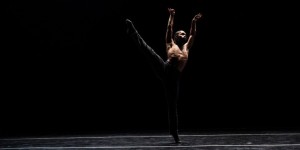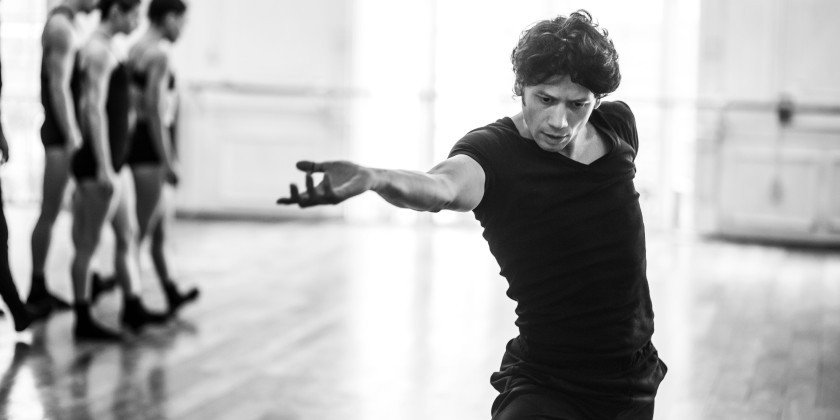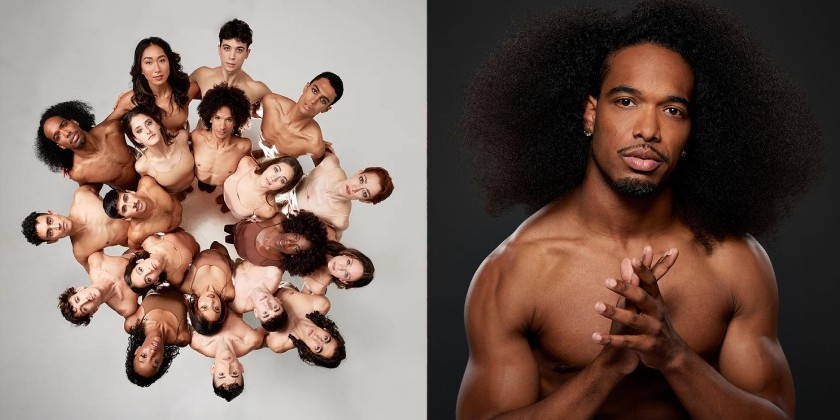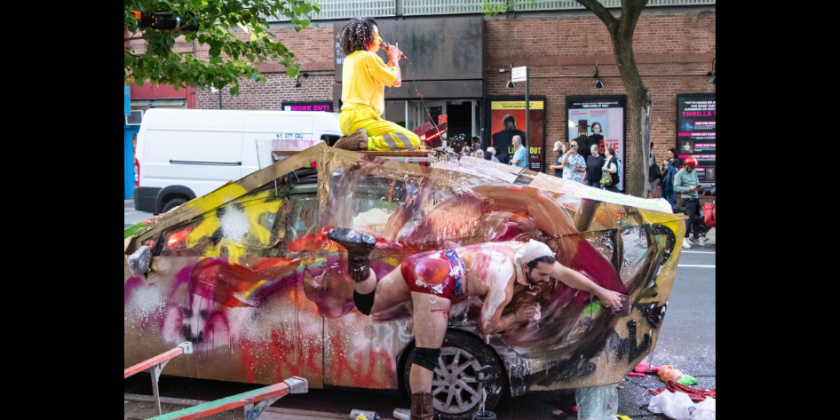IMPRESSIONS: Garth Fagan Dance at The Joyce Theater
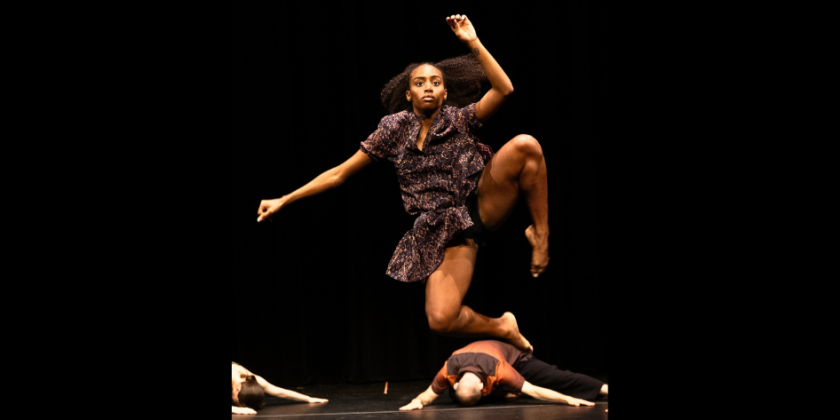
Garth Fagan Dance
Founder & Distinguished Artistic Director Emeritus: Garth Fagan
Artistic Director & Rehearsal Director: Norwood ‘PJ’ Pennewell
Executive Director & School Director: Natalie Rogers-Cropper
Principal Dancers: Norwood Pennewell, Natalie Rogers, Steve Humphrey, Gabrielle Samuel, Sabrina Cmelak-Shiman
Dancers: Daria Clarke, Ethan Beckwith-Cohen, Kiara Jolié Haywood, Amir Yorke, Janaluce Lane, Raea Moorehead
Guest Dancers: Micha Scott, Wynton Rice
Lighting Director: Lutin Tanner
Costume Designer: Chantal Thomas
Choreographer Garth Fagan, 84 years of age (and the winner of Tony and Olivier awards for Broadway’s Lion King), presented his dances and those of close associates at The Joyce Theater from October 29 until November 4, 2024. This engagement celebrating Garth Fagan Dance’s 50th year makes it clear why this Rochester, NY-based company remains popular.
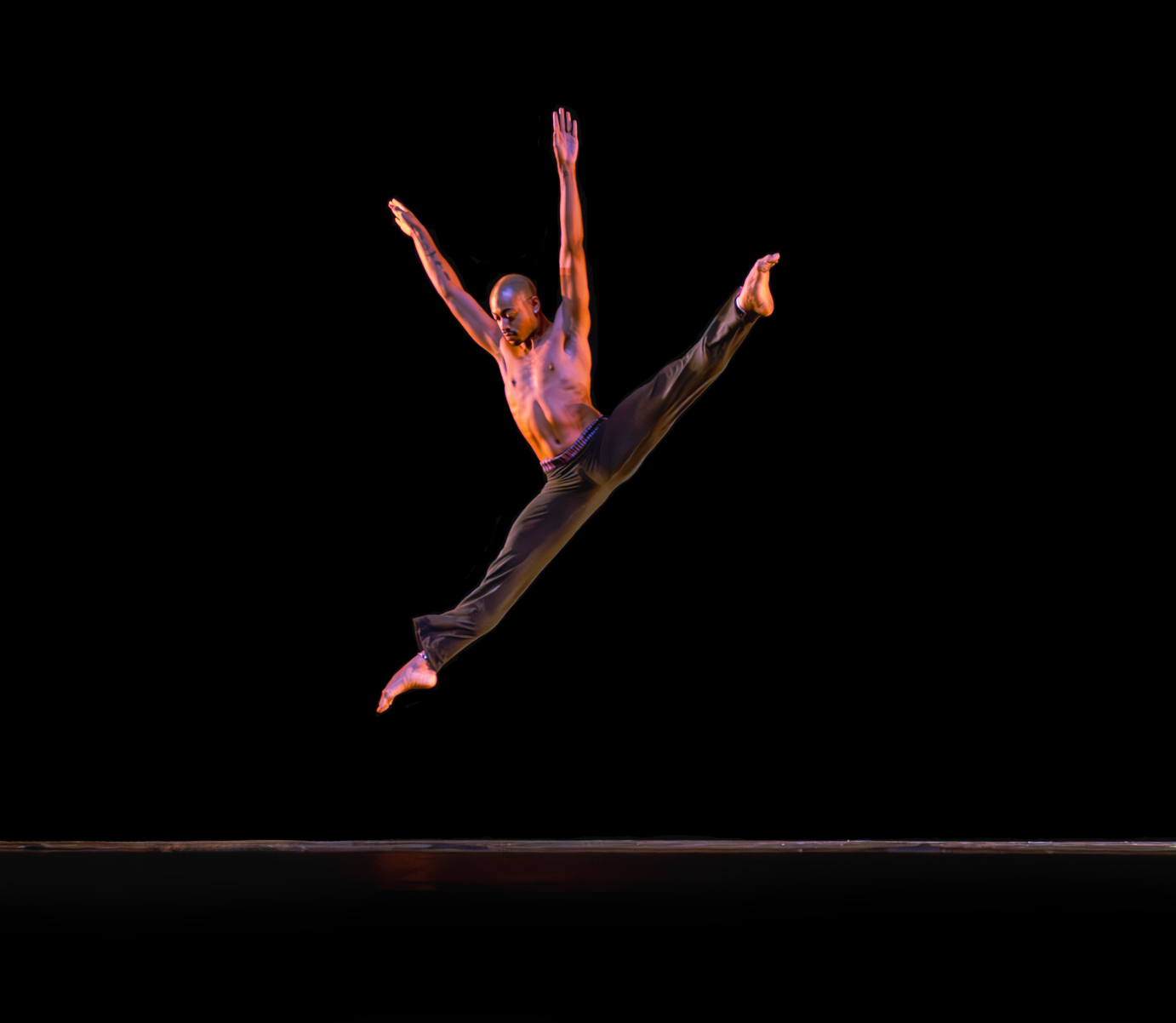
The multi-generational dances have in common a sense of supportive community and a warm-hearted generosity. Though uneven technically, the dancers fully embody Fagan’s trademarked “Fagan Technique,” that draws upon Afro-Caribbean, folk, modern, and postmodern dance, and ballet. Norwood ‘PJ’ Pennewell, and Natalie Rogers-Cropper, directors of the company and longtime principal dancers, also choreographed four dances on this program. Lutin Tanner, lighting designer, joined the company as a dancer in 1995. Micha Scott and Wynton Rice have performed with the company for more than a decade. Steve Humphrey for 54 years! Younger company dancers hold directorship roles in the Garth Fagan Dance School. It is heartening to note that the company is ‘keeping it in the family’, like other successful modern dance companies where longstanding dancers have been elevated to leadership roles.
Opening the evening, Fagan’s Prelude (1981, revised 1983), aptly subtitled Discipline is Freedom, showcases a series of polyrhythmic diagonal crossings (like the crossings in a modern dance class or in the Lion King) of varying heights, dynamics, and speeds that are indeed free yet disciplined. To music by pianist Abdullah Ibrahim and drummer Max Roach, the dance opens with the bare-chested, 72-year-old Humphrey, ably executing long-legged battements center stage. Three women ecstatically look to the sky as they repeat a skip, step, and kick in contrast to a series of rapid chaîné turns. Arms fling and wrap in varied figure 8’s, or elbows thrust twice while lunging. Both are signature movements. The full company projects a joyful forward momentum.
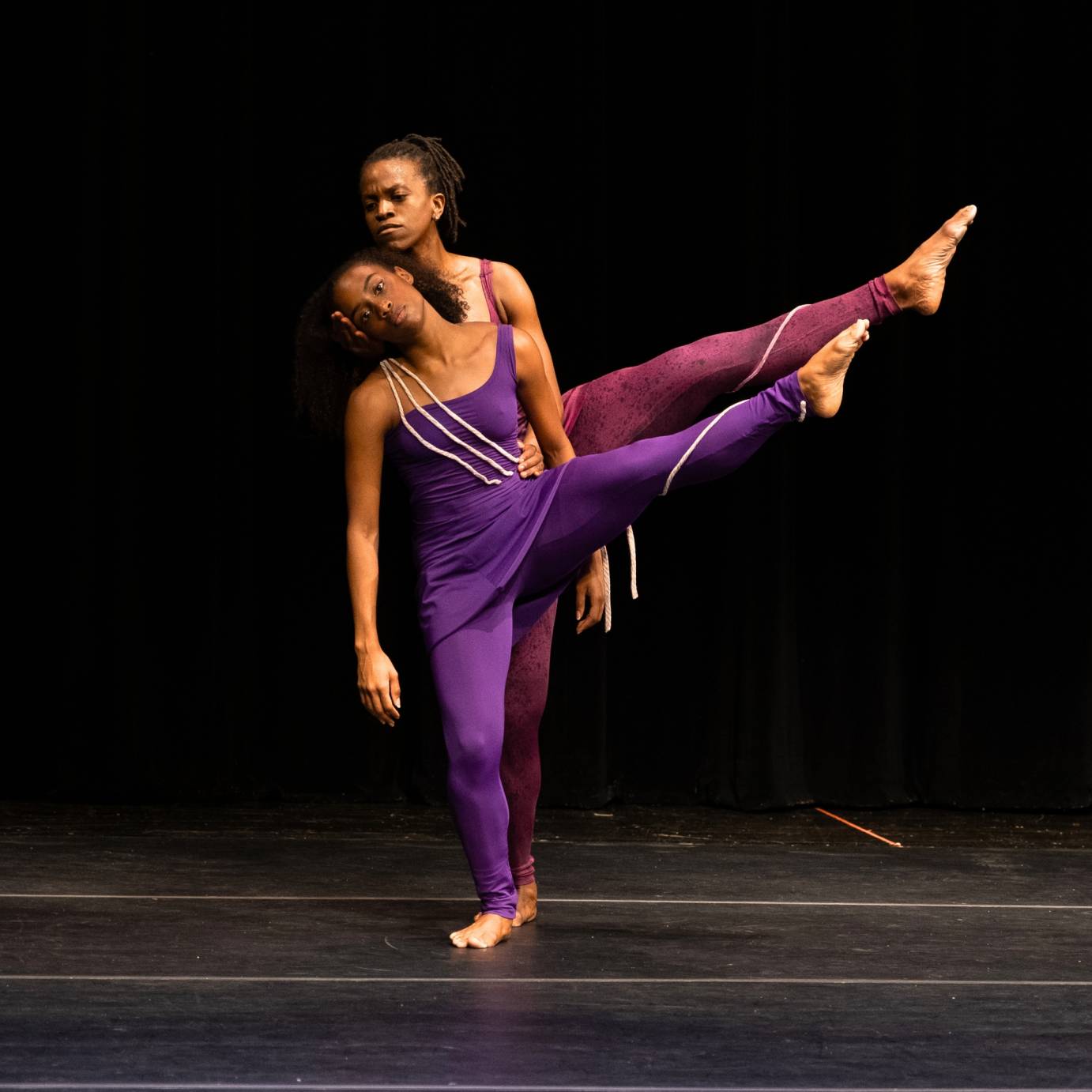
Senku is a Ghanaian term for a keyboard instrument, and the title of a 2006 work by Fagan. In an excerpted duet, Talk: Ms./Mrs., tall Gabrielle Samuel and diminutive Kiara Jolié Haywood explore the relationship between an “Aunty” (in the parlance of Jamaican-born Fagan) and her steward. The Aunty nurtures, extolls, and advises. The two stay close and perform an ice dancing-like camel spin (an adaption of the arabesque) with the taller above the shorter. Legs float upward as if buoyed by helium, and with accompanying small gestures the dancers support one another.
_%20Sabrina%20Cmelak%2C%20photo%20by%20Erich%20Camping.jpg)
Pennewell, Fagan’s lauded muse for decades, presents three dances: Gin (excerpt, 2013), Willow (a work-in-progress) and the New York City premiere, The Rite of Spring (2024), that concludes the evening. All are moodier in tone than Fagan’s works but capture the company’s resilience and elasticity. A unison duet for women identical in height and demeanor, fierce and fleetfooted Sabrina Cmelak-Shiman and Haywood, was a highlight of Gin. The marvelous Cmelak-Shiman, in the promising dance Willow, traces a weighted pattern that covers the full space with slow to quick layouts into jumps, and with little triplets and hopping runs into relevés.
The Rite of Spring to music by Igor Stravinsky, usually a dance of sacrifice, here tells the story of a people nurturing, teaching, and uplifting their next guide, a theme in line with the ethos of this company. This new leader (Haywood), fittingly for our times, is a woman. Her fine The Chosen One solo makes clear why she was promoted to principal dancer after the final performance. Especially captivating was the duet for Humphrey and Rogers-Cropper who lay their gray-haired heads on each other’s shoulders, rocking side-to-side to cover ground. Without each other, they fall over.
_%20Gabrielle%20Samuel%2C%20Amir%20Yorke%2C%20Sabrina%20Cmelak%2C%20photo%20by%20Erich%20Camping(1).png)
Life Receding, a New York City premiere and Rogers-Cropper’s first dance on the full company, features a central duet for Wynton Rice and Haywood that threads through the dance’s three parts. He shields her in his arms; and the two swirl in an imagined rising tide ascribed to climate change (this from publicity notes) that threatens to overwhelm this Caribbean choreographer’s home islands of Trinidad and Tobago. Dancers donning rattles on their ankles and wrists are soothsayers who perform ebullient, African-inspired movements highlighting their sinuous spines. A recording of Derek Walcott’s epic poem, Omeros, accompanied. Although it was difficult to catch the opening lines by a Nobel prize winner from St. Lucia, two words were distinguishable, “Remember that.” The poem references slavery, colonialism, tourism, wounding, and love as it recalls the history of the Caribbean Islands and forecasts the region’s future. Although rich in movement, the themes of the dance are under developed and do not clearly communicate what we should recall.
_%20Ethan%20Beckwith-Cohen%2C%20Daria%20Clarke%2C%20Kiara%20Jolie%20Haywood%2C%20Wynton%20Rice%2C%20Janalyce%20Lane%2C%20Gabrielle%20Samuel%2C%20photo%20by%20Erich%20Camping.jpg)







